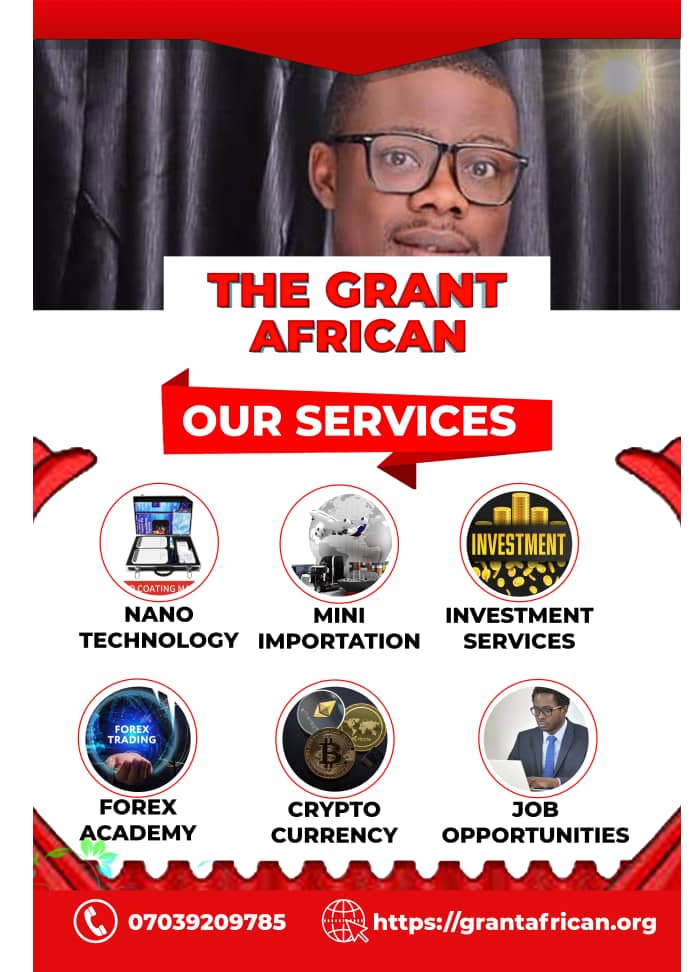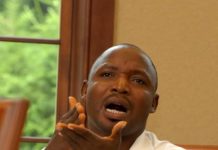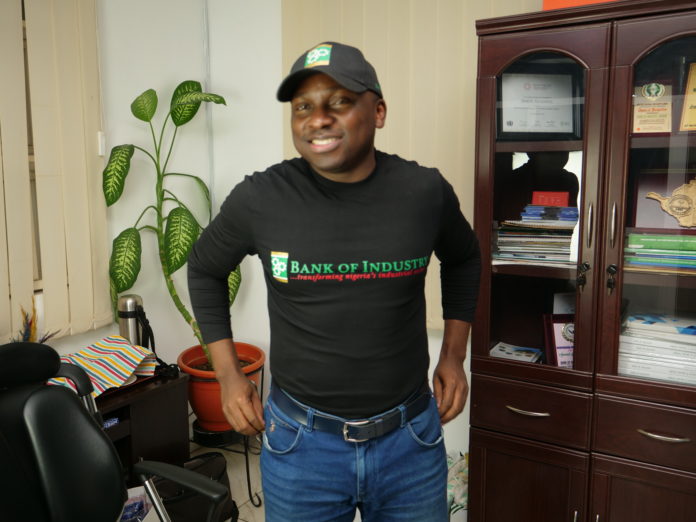A Metropolitan Ideas Copy in its recent edition played the 21 questions with the Oyo state Branch Manager of the Bank of Industry, Mr. Pacqueens Irabor, on the growth, challenges, and potential of SMEs in the coming years as well as where the gold lies in 2020.
How was 2019 for the branch?
For us, 2019 in the Oyo state office was quite an interesting year. It started a bit slowly because of the elections. There were elections in February and March. So, that affected the pace of business throughout the year. However, at the end of the day, it was very interesting in the sense that there were development projects that the bank was able to finance. We were able to create jobs and have a tremendous impact in different sectors. We in Oyo state play across several sectors of the economy and we were able to record some good deeds in these various sectors. At the end of the day, we closed the year with almost 2 billion approvals and 1.5 billion in disbursement. So, it was quite a good year for the Bank of Industry in Oyo state.

From your experience, where do you think the gold would be this year for start-ups as well as investors?
Generally, this is what I want people to understand the investment and opportunities they have to increase capital. If you look at every economy and every community, what drives growth and where the gold lies is actually population. So, the population of any community affects its prosperity. I normally tell people that the success of any business is a function of the size of the community they are willing and able to serve. So, we are lucky to be in Oyo state. In terms of cities with the largest population, Ibadan has the third-largest population in Nigeria, boasting of over 3.5 million people. These people are going to eat and wear clothes, they need decent shelters, and they need medications. When you look at all those sectors including agriculture, housing, medication, education, fashion as well, these are where the gold lies because every day, people need to use and consume the products and services in this sector. What you should look out for are the things people need on a daily basis.
How would you rate SME’S scope for growth in Oyo state generally?
Oyo state is very important and strategic. When I say strategic, I mean Oyo state is like a corridor to the largest commercial center of the country which is Lagos. It is the corridor to the north, south, and east. So, when your business is located in a place like Oyo state, you as an entrepreneur should count yourself lucky because you have access to growth, and you are just about 1 hour and 15 minutes away from the largest market in Nigeria and you are in a place where things are relatively cheap in terms of other factors of production. So, there are lots of rooms and opportunities for SMEs to grow. With the RAIL PROJECT that is on-going, I just know that the years ahead for Oyo state are just going to be wonderful. Once that project is completed and people can move from Lagos to Ibadan on the rail, people should know that going forward, Oyo state is the place to be. In this decade, from 2020 to 2030, I believe that Oyo state should be the haven for industrial growth in Nigeria.
What would you say are the peculiar challenges that SMEs face in Oyo state as against the backdrop of the state’s ease of doing business in general?
I want to categorize SMEs generally as nano, micro, small and medium enterprises. Nano are those that are just coming up which includes people that will need about 10,000 to 500,000 to start their business. Then, small ranges from 500,000 to about 10 million; Medium will then be 10 million and above. The challenges they usually face especially the nano and the micro are that in terms of documentation, they are not there yet. They are not well structured. Most of them have not registered their businesses, and that is one major hurdle that you must have crossed, otherwise, you find it difficult to attract capital from formal institutions like the banks. Some of them are not keeping their records. Some have accounts but do not have business accounts. All of these are limitations. In terms of documentation, SMEs always have the problem of the inability to access growth funds because they are not prepared. These are things that they actually need for business, and not just because they want to get loans. These are things that you need for your business to function properly. There was a book I read “Made in Africa”, and it said that the number one problem of SMEs in Africa is not the lack of access to the fund, it’s that Africa lacks people that can grow businesses. So, in terms of managerial skills, most SMEs just dabble into businesses without giving it a thought or acquiring the necessary skills. Therefore, this lack of managerial skill is a major problem for SMEs and this hinders their growth. With good managerial skills, you are able to envision and organize your operations. Then, you are able to audit and supervise to know when things are going wrong. You can continually increase because you are supervising the thing you are doing. You are seeing the loopholes and you are plugging the loopholes.
Give us a description of Oyo state’s ease of doing business.
I would want to speak from my perspective, that is the perspective of the Bank of Industry. As at 2015, for you to get a loan from the bank of industry, you have to have a landed property, we have to talk about your C of O. However, the Bank of Industry looked at this and said that for people who want to get a loan up to 10 million to start off a business or grow their business they should not really bother about looking for a C of O, or collateral in the state capital because you cannot borrow with collateral that is your village. So, the Bank of Industry decided to remove the collateral condition and said that although you may not have a landed property you should be able to know one or two guarantors that can stand in for you. That is social capital. So, for up to 2 million, you need just one guarantor to take a loan from the Bank of Industry, 2 guarantors for up to 5 million, and 3 guarantors if you need a loan of up to 10 million. That has in a way simplified the ease of doing business. So, if your business is registered and you have a track record that you already started this business, getting a loan from the Bank of Industry is very easy for you. No one is asking you for a C of O. No one is asking whether you have paid your tenement rate or you need the governor’s consent to mortgage. I believe that significantly, that has improved the ease of doing business in Oyo state.

In what industries in the southwest do you think the lion share of the credit should be channeled and why?
I believe that the agricultural sector and agro-allied processing industry should be the focus of businessmen in the southwest. The southwest can actually be the food basket of the nation. The elements are there, they are right. When I say element, I mean the environment, they have arable lands. So, anybody that wants to invest in a strategic sector should look at the agricultural business space. Moreover, the agric business space is a little bit tricky. In the Bank of Industry, we preach what we call the value chain approach. If you must invest in agriculture, you should use the market approach strategy. That means you must first and foremost locate an anchor, someone that can buy your produce before you ever invest. So, there must be an off-takers for every produce you want to farm. If you don’t have an off-taker, please don’t go to invest your energy on your farm. So that is what we call the market approach. BOI has been promoting this. We have a lot of large enterprises that need an off-takers, out-growers’ scheme, farmers that can produce their raw materials. This is the kind of strategic alliance that we want to bridge and this is what we have been doing very well in the BOI, that-is bringing off-takers to out-growers and forging a mutually beneficial relationship. So, the agric business value chain should be the focus of most entrepreneurs.
Along with a lack of organized and supportive ecosystem across board, one of the gaps young entrepreneurs face is mentorship and inspiration. Is there any helping hand from you?
As a person, I am very passionate about human capital development because I believe that no matter the natural resources that we have, the one that on our shoulders which is our brain, is the most productive and that is what we should actually focus on as a government, nation, and family. We should focus on human capital development. From my own effort, I have been able to come up with a non-government organization which I called The Noble Adventure for Mankind Empowerment, and that is where I contribute my quota to youth mentorship and development. What we do basically is to teach and guide youths to discover their essence, personality, and uniqueness, as well as to build businesses around that uniqueness. That means that they should follow their heart and passion. Every human being, every person has something that turns them on, and when you align with such, you begin to live in flow and things become very easy for you. So, there is a room for mentorship for younger ones. We do trainings and we also give BOI a platform, the third Saturday of every month. The BOI organizes what we call the Business Empowerment Support Training, the BOI BEST at the LovePreneurship centre in Ibadan where we train upcoming entrepreneurs and start-ups. We train them on different business models and we also teach them how to access BOI products and services. We do that every month and we also have an ongoing organization. This year we are planning to set up hubs. We call it the Co-creation Hub, the LovePreneurship Co-creation Hub. It is actually a common facility centre. What is the idea behind this common facility centre? Many youths have developed some skills, but the ability to start their own business is always a challenge. They are looking for loans to buy the necessary machines to start. For example, you are in the fashion industry, and you have learnt the skill but you need machines to start. So, what the LovePreneurship Co-creation Hub is doing is that they have set up a state-of-the-art fashion workshop where you have all the machines that you need. So, as a start-up entrepreneur, you don’t need to bother yourself any more about getting a loan. All you need to do is to come to the centre, register and have access to all these facilities. Now, we are directing youths. Now, your major focus as an entrepreneur is to go and get business. Look for your customers, then you come to the centre to produce your works. This makes life easy for them, and from there they can gather all the resources they need, probably in about one or two years before they go to start on their own. So, these are some of the opportunities we create for start-ups to grow in Oyo state.

Does BOI go out of its way to attract these SMEs?
Yes, we do, like I just said. Every month we organize a business empowerment and support training. That is one way we reach out to SMEs so that they understand what BOI is set out to do. So, they can also speak our language, because if they can, they will be able to unlock our resources. We guide them through our loan process. We guide them through our A-Z. I will say, BOI is one of the institutional blessings to Nigeria. This is because you get to know our processes upfront. It is all out on our website, and we give you access to it during these monthly trainings. People can also walk up to our office any day, anytime, to know our loan process. We also try to establish a media presence through the radio and television. Talking about television, BOI is on 2 national TVs, NTA and Channels, on Tuesdays and Thursdays every week, and we showcase businesses that we have funded. You get to hear the stories of the entrepreneurs that have benefitted from our facilities, and that on its own is an education. You know what to do, you know the kind of business we finance and you know how to attract our products and services.
Tell us in summary about Project NAME foundation and LOVEPRENEURSHIP?
The LovePreneurship centre is a spiritual, socio-economic and psychological empowerment centre. It is set up so that human beings as individuals can discover and create their own fulfillment by themselves because the fulfillment of each individual resides in them. So, we train people to discover who they are and build businesses around their uniqueness. By so doing, they serve humanity, glorify divinity, and fulfill their personality. However, one of the questions that come to the heart of people who have discovered who they are and are trying to build relevant businesses is that of where to get the needed resources. What we do with the project NAME website is that it is a crowdfunding website. We also use it as a promotion website so that once you have discovered your noble adventure for mankind empowerment, you can create it as a project, and because it is for mankind empowerment, we believe that other people would be attracted to what you are trying to do, and they can render support. Since it is not just for your own empowerment, you can always expect that people would want to give their support either in cash or kind. This is what we promote in project NAME.ng. We believe that it is not every that can attract debt financing, but equity financing or donations. We have created that window so that people that cannot access BOI loan and still have the noble adventure should be able to use that platform to transform whatever initiative they have.
How do we ensure that debt-servicing cost does not choke SMEs in the long run?
I think that with the recent move of the central bank, pushing commercial banks to increase their lending, as at today the loan to deposit ratio has been raised to 65% so this is pushing commercial banks to fund these setups. Before now, commercial banks basically fund the government by buying treasury bills and all, but now they are being forced to look at SMEs which we all believe are the engine of growth. It encourages them to look at the ones that are viable among them, and help them to grow. So, this will demand from the supply side to have a way of lending, and it will bring down the interest rate. Another thing that the central bank had also done to reduce the interest rate is that they have made it mandatory that when you borrow and you supply your BVN if you fail to pay back to Bank A they have the right to debit from other accounts that are linked to your BVN. So, the beauty of it is that it is going to increase financial discipline, and that is what the banks need. The banks want to be able to lend and still go back to sleep. Before now, we had financial indiscipline. People borrow from Bank A and move to Bank B without paying back, now that window will no longer be there, we have more responsible borrowers and when we have more responsible borrowers, the banks will reduce their interest rates because interest rates are the sum of perceived risk in a sector but once the risk has been lowered and mitigated, then the interest rate would come down.
Which industry do you think bears the most risk presently?
Unfortunately, the one that should be the pride of all investors, which is the agric business space bears a lot of risks. You are exposed to weather conditions, elements and so on. Secondly, the agric business value chain is not well structured. The people in production are not well connected to those in processing. I can say that even the farmers are gambling because they go to their farms without knowing who will buy their produce at the end of the planting season. Some of them may be thinking that cassava is the in thing, then they delve into it only to later find out at harvest that no one wants to buy their cassava. So that is a huge risk. To mitigate this risk, I think the private sector should be able to defeat this challenge by creating a commodity market that can be driven by the private sector. The commodity market will be able to guarantee a market for farmers. This means that before every planting season, they should have known how much their corns would be sold for before planting, and the commodity bought would now be able to provide data input. People would be able to support farmers better because they know what the farmer would sell at the end of the planting season. So that is going to de-risk the agricultural space. I hope that some smart thinking Nigerians would look into that. We don’t need to wait for the government. Some people have already started it, and I believe that this would spread across the nation.
What are your ideas on how financial institutions should be playing their roles in driving financial inclusions?
The Nigeria banking system needs to be disrupted, and I mean that what we are experiencing currently cannot take us into the future we desire. We have had a system whereby the banks are a little bit laid back while they just wait for businesses to do all the fine-tuning, and once the model is fine-tuned, they come to them for loans. Going forward, I think that should change. I think that banks should play an active role in creating platforms and opportunities for SMEs. They must play an active and not a passive role anymore. The Bank of Industry is doing that right now. Like our agric value chain financing, where we go out of our way to first forge the relationship between out-growers and up-takers. So, we are asking most of the up-takers who are the agro-allied processing companies whether they can create a model, an out-grower scheme where we can have a lot of farmers farming for you so that you can up-take at the end of the farming season. That is the kind of active participation that banks should now play. I believe that commercial banks have a better structure to play it than the BOI because they control the payment platform. When they create this kind of synergy, the up-taker gets to bank with them, the farmers who are the out-growers are also banking with them. They have an account with them so that payments are going to move seamlessly between the up-takers and the-out-growers. So, they have no risks at all because they are seeing it end to end. So, banks should be able to play that kind of role in ‘midwifing’ business opportunities. You create the business for yourself and you also enjoy it. I think that should be the way the financial institution should go, going forward.
Underperformance of financial institutions traced to corruption and bad leadership has been pointed by some analysts as some of the banes of economic growth in Nigeria. Is this true or false, and state reasons for your answer?
I think that there have been cases of financial misappropriation involving insider dealings. There is no doubt about that as it has been some of the issues in the banking sector. We cannot separate our banking system from our nation. Our country generally is bedeviled with this evil called corruption. So, I will not deny that corruption has had a toll on the banking system.
How do you think the government can strengthen the entire banking sector for it to be adequately positioned so as to contribute more to economic development?
I think one of the agencies of the government that is saddled with that responsibility is the central bank of Nigeria. We also have the NDIC. These are the two agencies that the government uses to control the activity of the banking sector. However, what I want to canvass that the government should do for the country is to create a specialized court, I mean a judiciary system. No country can grow beyond its ability to enforce contracts. The rule of law has to be actively pursued in the area of contracts. By, this you bring about ease in doing business. For instance, I have an arrangement with you to pay X amount of naira, while you are expected to deliver X amount of goods. If you default in it and I can find redress, then there is really no risk in it. Unfortunately, we have a country where the trust level is so low, and when the trust level is low in any economy or nation, the ease of doing business would be low and the cost of doing business would be high. When the trust level is high, the ease of doing business would be very high and the cost of doing business would be low. The only way to increase the trust level is to bring justice and fairness, and that is the work of the government through the judiciary. We should have a specialized court. This situation where people borrow from the bank, and they can run to the court and file a case that would be adjourned for the year cannot help anybody. However, when people know that if the court would do justice, you would be creating opportunities for business-minded people and lawyers. Anyone that wants to go into any business deal must get a lawyer to help them. If you can entrench the rule of law and you can enforce contracts in this country, it would have a tremendous impact in our business transactions.
Is there a new direction or strategy this year for the bank of industry at the Federal and State levels?
Yes. this year the Bank of Industry is looking at a couple of initiatives to help our core set up. In BOI primarily we focus on the manufacturing and processing sector of the economy. Just to mention two more products we are bringing up, we are looking at the distributor financing. Let’s look at a manufacturer for instance. A manufacturer has both an upstream and a downstream relationship with people. He has an upstream relationship with his suppliers who bring in raw materials, so we have created a product where we can also finance suppliers of manufacturers. The downstream has to do with distributors and retailers. We have also created a product where we can support the distributors of made-in-Nigeria products. We are going to be easing their cash flow since they would have been spending a lot of money in buying raw material, now we are going to be financing these raw materials suppliers as well as their distributors. That is going to be a game-changer, we believe. We will also be financing platform businesses that-is value chain. For example, Shoprite has a lot of suppliers, or people manufacturing locally in Nigeria. When Shoprite buys from them, they have a window before Shoprite pays back, but when the BOI is financing those producers, they make their cash flow better and smoother, thereby contributing to their growth.
In closing, what would be your advice for entrepreneurs in terms of modeling their businesses in order to achieve maximum growth this year?
To me, it is quite sad. The BOI is created to transform the Nigerian industrial sector, and we cannot do that unless we have businesses that are also transformative and disrupt several sectors of the economy. However, the kind of business proposals and entrepreneurs that we see often, they are not the types that can take us to our promise land when it comes to transforming the Nigerian industrial sector. So, I will advise that entrepreneurs look beyond just money and look to how to solve the problems of humanity because this is the core purpose of all businesses. That is also why the BOI exists. Today, we have been faced with a lot of challenges as a nation. We have issues with our ability to feed ourselves i.e. food security. We have a challenge in housing too, health care, educational system and other different sectors of our country. These are waiting on entrepreneurs that have a lion heart to address these problems. BOI encourages that we build education around vocation. Entrepreneurs should look at how they can solve the different problems of society, and come up with creative business models that can help them address these issues, and that should be the beginning. If Nigeria is faced with a lot of problems, then it is also faced with a lot of opportunities for people that have foresight. Solve a problem, and become prosperous.

















